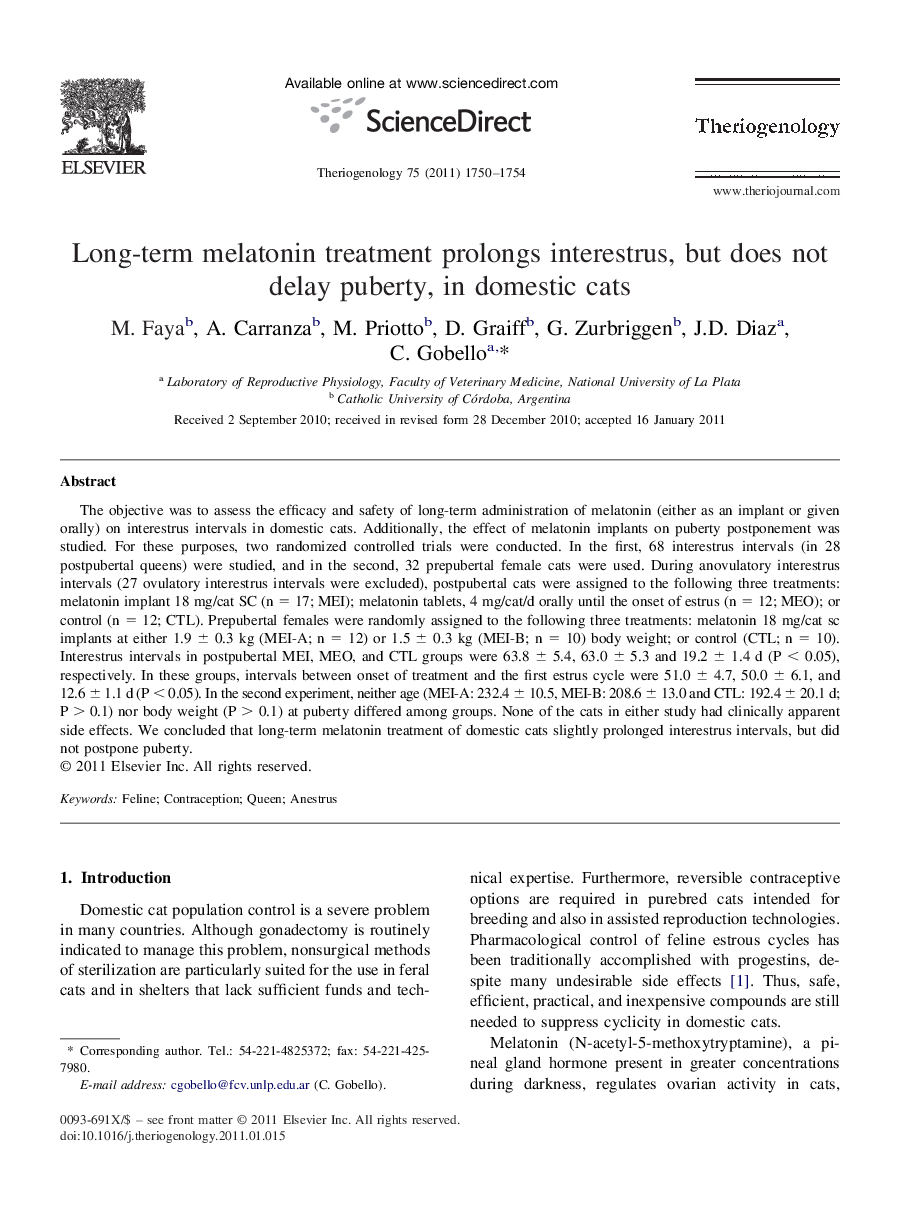| Article ID | Journal | Published Year | Pages | File Type |
|---|---|---|---|---|
| 2095457 | Theriogenology | 2011 | 5 Pages |
The objective was to assess the efficacy and safety of long-term administration of melatonin (either as an implant or given orally) on interestrus intervals in domestic cats. Additionally, the effect of melatonin implants on puberty postponement was studied. For these purposes, two randomized controlled trials were conducted. In the first, 68 interestrus intervals (in 28 postpubertal queens) were studied, and in the second, 32 prepubertal female cats were used. During anovulatory interestrus intervals (27 ovulatory interestrus intervals were excluded), postpubertal cats were assigned to the following three treatments: melatonin implant 18 mg/cat SC (n = 17; MEI); melatonin tablets, 4 mg/cat/d orally until the onset of estrus (n = 12; MEO); or control (n = 12; CTL). Prepubertal females were randomly assigned to the following three treatments: melatonin 18 mg/cat sc implants at either 1.9 ± 0.3 kg (MEI-A; n = 12) or 1.5 ± 0.3 kg (MEI-B; n = 10) body weight; or control (CTL; n = 10). Interestrus intervals in postpubertal MEI, MEO, and CTL groups were 63.8 ± 5.4, 63.0 ± 5.3 and 19.2 ± 1.4 d (P < 0.05), respectively. In these groups, intervals between onset of treatment and the first estrus cycle were 51.0 ± 4.7, 50.0 ± 6.1, and 12.6 ± 1.1 d (P < 0.05). In the second experiment, neither age (MEI-A: 232.4 ± 10.5, MEI-B: 208.6 ± 13.0 and CTL: 192.4 ± 20.1 d; P > 0.1) nor body weight (P > 0.1) at puberty differed among groups. None of the cats in either study had clinically apparent side effects. We concluded that long-term melatonin treatment of domestic cats slightly prolonged interestrus intervals, but did not postpone puberty.
